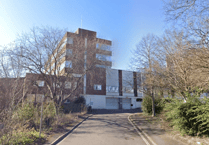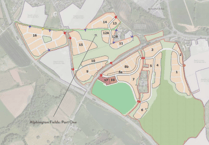Pioneering projects to cut Exeter’s carbon footprint will cost the city council more than £55million over the next five years.
The city already has the UK’s first ‘passivhaus’ carbon-neutral leisure centre at St Sidwell’s Point, and is leading the way on a number of other energy saving initiatives.
But the drive towards Net Zero, where carbon emissions are cut to a level where no harmful gases are left in the atmosphere, comes at a cost.
A new study carried out by the University of Exeter sets out for the first time the costs associated with getting to Net Zero.
If the city council keeps going as it is with its de-carbonisation initiatives it will spend £55.5million by 2031, the study says.
Going above and beyond its current policies could cost up to £129million over the same time period.
The university has provided calculations for three scenarios – Business as Usual, which is the level already planned; Mid Case which escalates activity and Net Zero (Max), which is a maximum level of measures.
Under the most expensive scenario, the council’s housing stock would become fully electric, with more solar panels.
It would also mean air source heat pumps on council buildings including the Royal Albert Memorial Museum, where difficult access to the historic building means installing a heat pump would cost more than £5million.
The council says getting to the ‘max’ level would be ‘challenging and potentially contentious’.
Director of city development Ian Collinson said the study was ‘totally ground-breaking’ in putting an exact cost on the quest for Net Zero.
But he warned: “Even achieving the ‘Business as Usual’ level is extremely challenging.”
Cllr Matthew Vizard (Lab, Newton and St Leonards) said it was a ‘golden opportunity’ for Exeter.
But, he added: “With the best will in the world we do not have the funding to achieve the highest possible outcome, but let’s hope things will move in that direction in terms of government funding.
“It gives us an opportunity to go and knock on some doors and say look what we’re doing here in Exeter.”
Cllr Duncan Wood (Lab, Pinhoe) said the study highlighted the ‘hard choices’ faced by the council in its mission.





Comments
This article has no comments yet. Be the first to leave a comment.